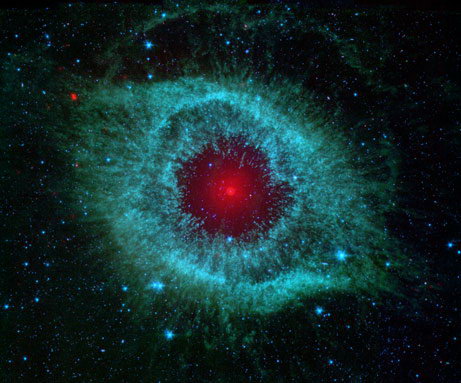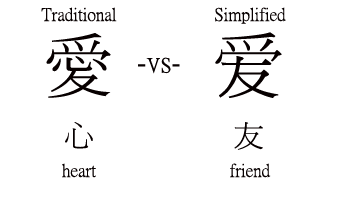Mon 4 Feb 2008
A query to all reductionists… what honestly makes you think you can define limitless reality?
Posted by + mOdOk + under Japan , The Hidden , metaphysicsNo Comments

It’s not the first time this has happened, and it certainly won’t be the last. My thoughts had just turned toward someone whom I had met briefly over the weekend, who had none-the-less made quite an impression on me, but, unfortunately, just happened to be moving back to Brazil. It turned out she was half Japanese, so we spent a good chunk of our time speaking in that language, which still felt amazingly natural to me after nearly 14 years of essential non-use - far better than my Chinese can ever hope to be… She had said she was going to SMS me her e-mail address, but I still hadn’t heard from her. Until the exact moment I started to think of her. Then, right on cue, a message arrived with her email address.
This isn’t even the best example.
I remember vividly, years back, walking the streets of Tokyo with my friend Alex, when he stopped suddenly, got a very apprehensive look on his face, and said, “I’ve got to call my sister!” We found an international phone booth close by, and he called her, only to find out that his grandfather had just died.
At the time, I was an absolute materialist, so I just didn’t know what to make of it. Yet nearly everyone shares similar experiences. Indeed, before our world of instantaneous electronic communication, such occurrences of instantaneous non-verbal communication were commonplace.
I believe I’ve come a bit closer to understanding what was occurring in both of these cases by accepting the fact that there are some things simply cannot fit within the limited framework embraced by the majority of mainstream scientists, and therefor a great many people in the modern world. Fortunately, not all, though.
Rather than representing anomalous behavior of the physical universe, I’d say these two stories illustrate a fundamental principal - a universal principal - namely, that everyone, and everything is connected to everything else.
Non-local communication in physics happens between two particles after they interact, separate, and then go on their merry ways. It turns out that once they come in contact, they maintain the connection however far apart they then may go. When one changes state, the other will, seemingly miraculously, change to the same state as well - at the exact same moment. Well, it only seems miraculous to someone who believes fervently in Einstein’s speed limit that nothing can travel faster than the speed of light. How then can these entangled particles share instantaneous communication?
I bring up Einstein here, because this has been a core issue of contention among physicists, ever since Einstein and Niels Bohr duked it out, beginning in 1927 at the fifth Solvay Conference of physicists, and ending with Einstein’s death in 1955. Whereas Bohr was convinced that experimenters were, in fact, creating the universe out of their results, Einstein insisted there must be something “real” out there.
It is said by some that pretty much everything in our modern world can be traced back to Plato. Plato claimed that we cannot really understand the physical world by itself, and that in order to comprehend all that occurs in our world we must accept the reality of another nonphysical, unchanging, timeless, and eternal realm which he called the world of forms.
Prior to the whole quantum mechanics debate, physicists had finally nailed the coffin shut on the idea of an aetheric field. Nowadays, people like to talk about a “zero point energy” field, but what is the difference between that and the aether? Essentially, we now know there is no such thing as “empty space”. So, what exactly is it that is missing?
Ancient mystics spoke of Akashic records upon which all that occurs is written, and whereby it is possible to know everything there is to know about anything. That sounds remarkably similar to an information field that exists outside of time and space. Like something that could explain the non-local instantaneous communication that occurs as part of our daily lives. Like why prayers and the laying on of hands actually do heal people.
In his most excellent book, Science and the Akashic Field - An Integral Theory of Everything, Ervin Laszlo makes an excellent argument that what is missing is, in fact, an information field quite like the Akashic records of legend, which he has therefor dubbed the a-field. He goes a long way toward explaining why things just don’t seem to add up for many traditional physicists.
So, where does that leave the reductionists? As we plod on toward a unified field theory, it leaves many physicists extremely disturbed. In mathematics, if you end up with infinity as a sum, you’ve done something wrong. And every attempt to bridge the gap between the macro world and micro world inevitably ends in infinity. Maybe that should be a sign that they are never going to get totality to fit into such a tiny box.
Perhaps, they need a larger box.
So, tell me… It’s a fact that our modern world was made possible by discoveries made early in the twentieth century. Yet, here we are… stuck in the middle between what can and cannot be explained. What lies ahead with the next breakthrough? Quantum computing? Time travel? Something as yet unimaginable?
From whence will this breakthrough arrive? Will you argue that consciousness is mere epiphenomena of the brain? Or are you ready to accept that there may be more? That perhaps consciousness is all there is?













